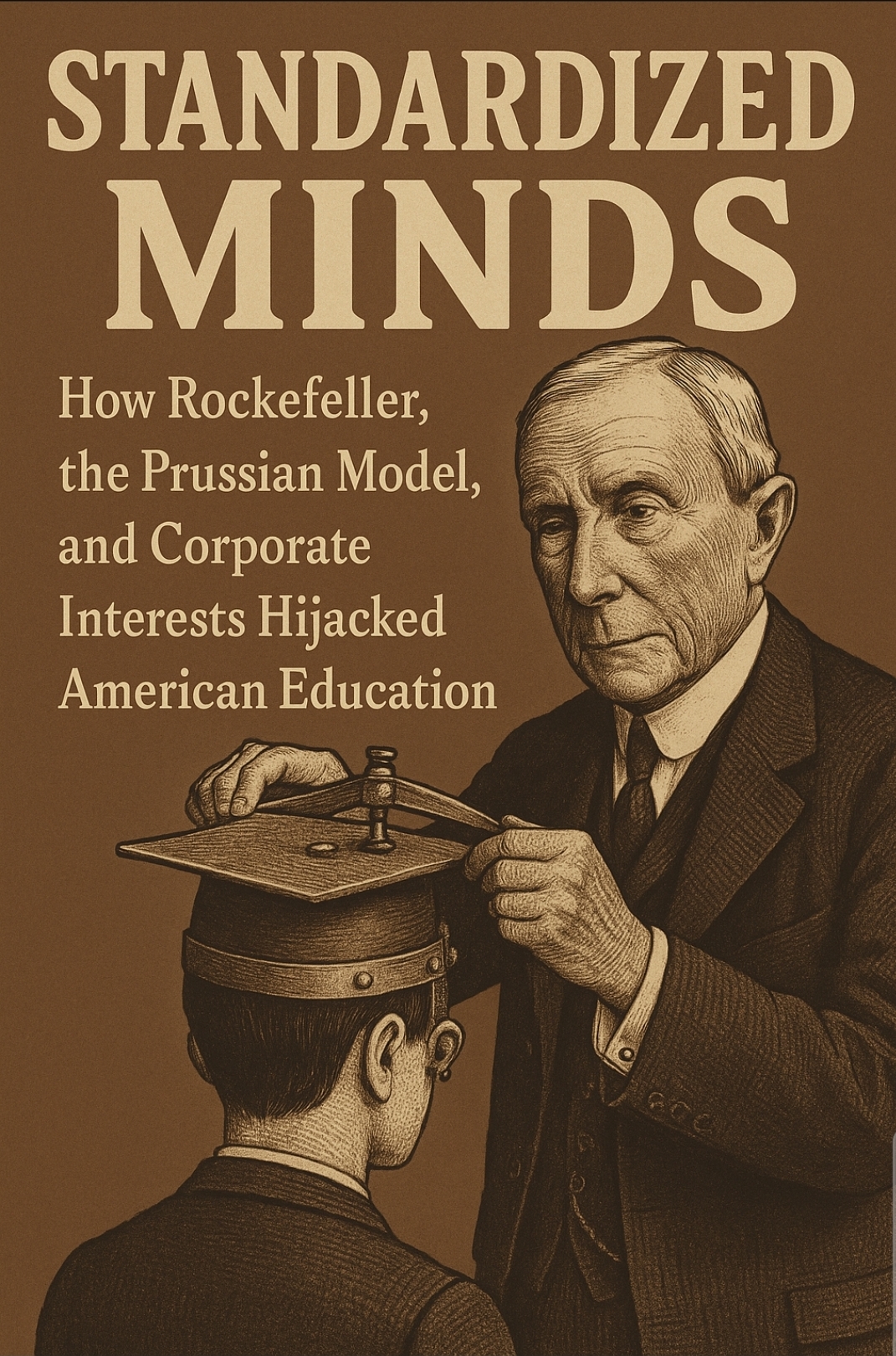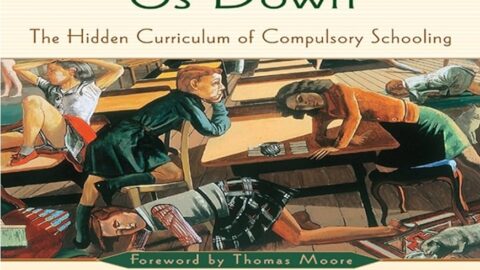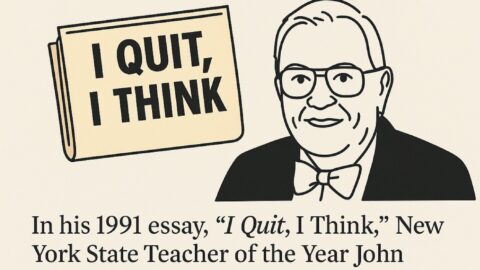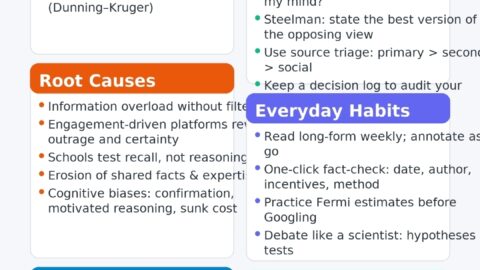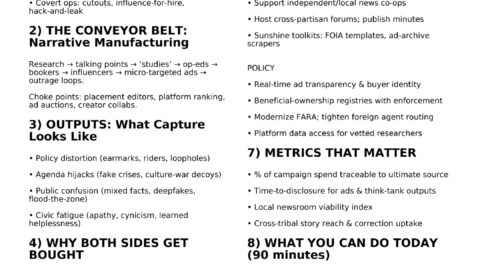Subtitle: From Industrial Obedience to Intellectual Conformity—The Birth of the Compulsory Schooling Machine
Introduction: Why Education Feels Like Indoctrination
Most people can sense it, even if they can’t explain it: modern education often feels less like liberation and more like programming. Critical thinking is stifled. Curiosity is punished. Compliance is rewarded. And despite 13+ years of schooling, many students emerge knowing more about obeying bells than about logic, liberty, or finance.
This is not a design flaw. It is the design.
At the center of that design is a powerful intersection of industrial capitalism, elite control, and the Prussian model of obedience education. And no family played a bigger role in engineering it than the Rockefellers.
The Prussian Model: Birthplace of State-Controlled Schooling
The story begins in early 19th-century Prussia, where the ruling class was struggling to control a growing population after the chaos of Napoleonic wars. The answer? A new kind of schooling system: one that produced obedient, predictable, uniform citizens—not independent thinkers.
Key Goals of the Prussian System:
- Instill loyalty to the state.
- Prepare children to become efficient soldiers or bureaucrats.
- Enforce hierarchical obedience through bells, ranks, and rote memorization.
- Suppress dissent by discouraging questioning or abstract reasoning.
This model was so “effective” that it was quickly studied and admired by foreign elites. Among those who took note? Horace Mann, the so-called father of American education, and later, John D. Rockefeller—the father of the corporate world.
Enter Rockefeller: From Oil Barons to Social Engineers
By the early 20th century, John D. Rockefeller had monopolized the oil industry through Standard Oil, building what was then the largest private fortune in history. But he didn’t stop at oil. He had bigger ambitions—to shape society itself.
Key Mechanism: Philanthropy as Control
Rockefeller’s “philanthropic” foundations were not about charity. They were strategic tools to reshape public life and entrench elite dominance, including over health, finance, and education.
“I don’t want a nation of thinkers. I want a nation of workers.”
– John D. Rockefeller (attributed)
Whether he said it or not, this philosophy was baked into his funding priorities.
The General Education Board (GEB): Schooling for the Machine
In 1902, Rockefeller created the General Education Board, which would become the most influential force in shaping the American education system.
GEB’s Real Objectives:
- Standardize curriculum to serve industrial capitalism.
- Condition children to become disciplined laborers, not creative citizens.
- Undermine localized, diverse schooling models in favor of centralized control.
- Promote a worldview beneficial to corporate and state authority.
In their own words, from an internal GEB document:
“In our dreams… people yield themselves with perfect docility to our molding hands… We shall not try to make these people or any of their children into philosophers or men of learning or science.”
– Occasional Letter Number One, GEB, Frederick Gates
Frederick Gates, Rockefeller’s right-hand man in education policy, explicitly stated their intention: education was not to enlighten, but to domesticate.
Obedience over Intelligence: The Classroom as Factory
Inspired by the Prussian model and backed by Rockefeller’s millions, public schooling was re-engineered to mirror the industrial factory:
| Factory | Public School |
|---|---|
| Assembly lines | Rows of desks |
| Punch clock | School bells |
| Manager / foreman | Teacher / administrator |
| Uniforms & rules | Dress codes & hand-raising |
| Production quotas | Grading rubrics |
| Worker obedience | Student obedience |
The result? A production line for human capital, engineered not to challenge the status quo but to reinforce it.
Suppression of Critical Thinking: The Legacy of Trained Incapacity
In this model, intellectual curiosity is a liability, not an asset.
From the Rockefeller-Gates blueprint to the modern Department of Education, the goal has been to:
- Suppress moral and philosophical reasoning (Kohlberg’s higher moral stages).
- Discourage multi-perspective thinking (6 Blind Men, 6 Thinking Hats).
- Promote emotional obedience through reward/punishment cycles.
- Elevate credentialism over wisdom (see Feynman’s Warning).
As John Taylor Gatto (New York State Teacher of the Year) famously warned, the hidden curriculum of schooling is:
- Stay in your class.
- Obey authority.
- Don’t think too much.
- Don’t ask why.
From Factory to Algorithm: The Digital Upgrade
Fast forward to the 21st century. The same control systems now wear a digital mask.
- Education is increasingly test-centric, with data harvested by corporations.
- Students are trained to compete, perform, and conform to algorithmic rubrics.
- Critical subjects like civics, philosophy, and financial literacy are either erased or hollowed out.
- Tech billionaires like Gates and Zuckerberg now continue the Rockefeller model under the guise of innovation.
Meanwhile, student debt chains the mind, and social media controls the soul.
The Psychological Toll: Shame, Burnout, and Learned Helplessness
The result of this long-term Rockefeller-Prussian project isn’t just economic—it’s psychological and spiritual:
- Mass burnout and anxiety by adulthood.
- Imposter syndrome even among the highly educated.
- A learned belief that your worth = your compliance and output.
- A severing of the “will to meaning” (Frankl) and spiritual identity.
People aren’t just undereducated—they’re indoctrinated to believe that obedience is virtue, and that questioning authority is dangerous.
The Cultural and Moral Consequences
This system has produced:
- A population that knows how to follow orders, but not how to ask questions.
- Citizens who fear freedom, as Dewey warned, because they’ve never practiced it.
- Gatekeepers in every institution—teachers, journalists, bureaucrats—who unconsciously perpetuate the system they were shaped by.
And most tragically, generations of people who don’t know how to think, only how to conform.
Conclusion: Reclaiming Education for the Soul
We are now in the late-stage decay of a centuries-old project to separate people from their moral compass, creative agency, and intellectual sovereignty.
Education was hijacked not just to make good workers—but to make obedient citizens who serve capital, not conscience.
To break free:
- Teach real history, including Rockefeller’s influence.
- Return to Socratic questioning, classical philosophy, and spiritual development.
- Focus on critical thinking, not credentialism.
- Replace compliance with moral intelligence.
- Reject the shame of not fitting in—and learn to stand out with integrity.
As C.S. Lewis warned in The Abolition of Man:
“We make men without chests and expect of them virtue and enterprise.”
It’s time we restore the chest—and the courage—to resist indoctrination and rekindle the fire of independent thought.

